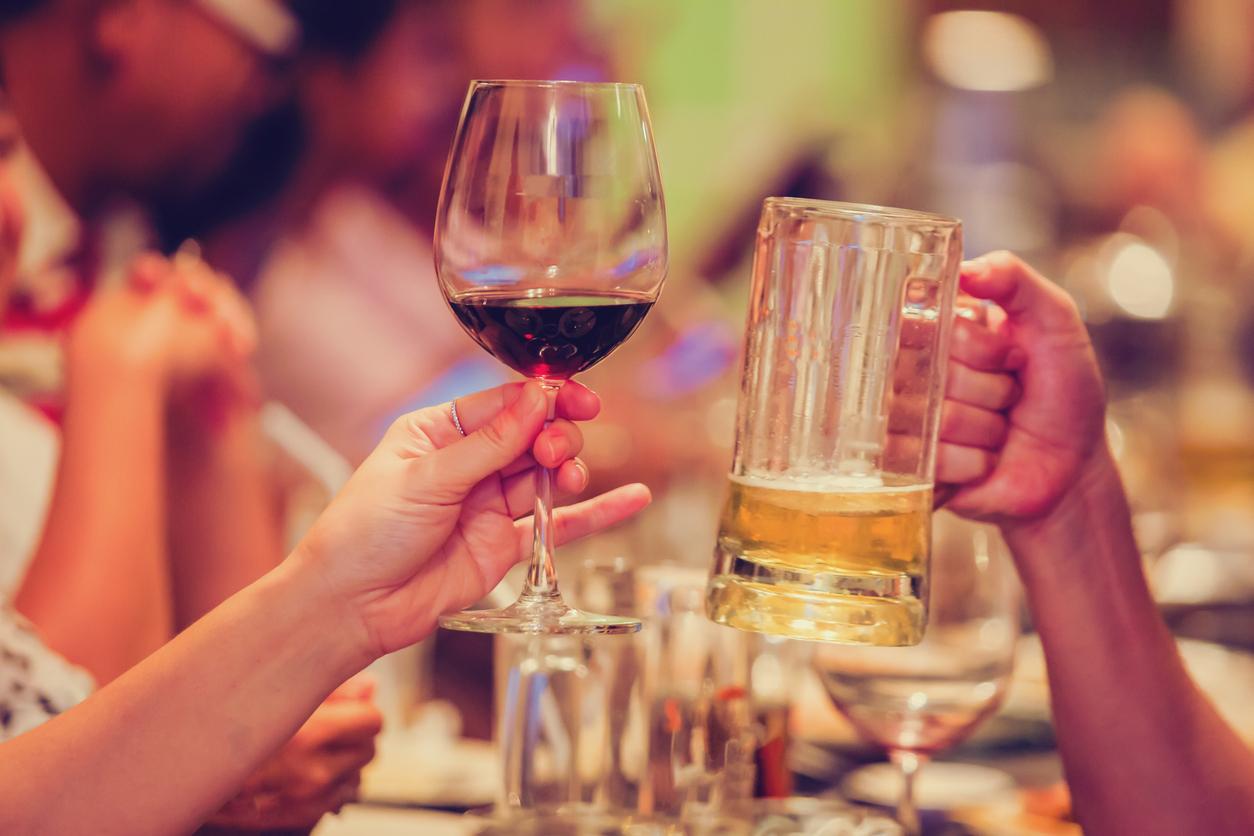Faced with the multiplication of cases of addiction, the French, through a survey, show that for them it is a real illness and that they refuse to stigmatize those who suffer from it. And they expect improvement in its prevention and care.

- Three out of four French people see addiction as a real illness.
- They show empathy for the suffering of people who are victims of addiction.
- 64% of those questioned believe that the State takes the subject of addictions poorly into account.
Bad news: addiction, whatever its form, tobacco, alcohol, drugs, sex or gambling is booming in France according to nearly eight out of ten French people and 85% of practitioners. But also good news: not only are the French lucid about the reality of this problem but above all they refuse to stigmatize people who suffer from addictions and even have real empathy for the suffering they generate. Here are the two very great lessons of a survey carried out by Harris Interactive for Addict’AIDE, a prevention and support portal for all those who suffer from addictive behavior.
“This survey shows real maturity among the French on the issue of addictions”confirms Professor Amine Benyamina, addictologist psychiatrist and president of Addict’AIDE.
Addiction, a growing disease
Certainly mature French people, three quarters of whom consider that addiction is in fact a real illness, … but above all worried since, beyond judging that this illness is in full expansion (77%), a large majority think that it can affect anyone and that it is unfortunately, for almost nine out of ten of those questioned, very difficult to put an end to it.
The other area of concern highlighted by the results of this survey is that the risk of addiction is considered particularly high among young people, particularly young urban men, and often linked to the arrival of new products such as synthetic drugs or nitrous oxide and new addictive practices like screens and chemsex.
And, unsurprisingly, the French believe that the profile of people affected by addiction is that of people who are psychologically fragile (88%), easily influenced (85%), suffering from loneliness (74%) or having a family history of addiction.
The difficulty of admitting that you suffer from addiction
Faced with these findings, the question arises as to how to help or treat those who suffer from this disease when a large majority of those questioned (84%) believe that ““We don’t necessarily realize it ourselves when we have an addiction.” and that recognizing the illness and accepting to be helped “constitutes the main difficulty in setting up support”.
A phenomenon aggravated by another constant in cases of addiction, the difficulty of talking about it. Half of those who suffer from this disease declare “kept it to themselves” thinking they would be able to get by on their own. This illustrates a certain lack of information on this subject accompanied by preconceived ideas such as the fact that there are hard drugs but also soft drugs (76%) or that drinking one glass of alcoholic beverage per day “is good for the heart”…
Unsatisfactory management of the different aspects of addictions
Although more than half of French people believe that addictions “are better taken care of than in the past”they also consider the consideration and treatment of the various aspects linked to addictions to be unsatisfactory (59%), in particular the number of health professionals capable of intervening in this disease or the financial aspect of treatment.
And, according to the results of this survey, the main responsible for this weakness in the care of victims of addiction is… the State. For 64% of French people and 79% of practitioners (!) this health problem is “poorly taken into account by public authorities” despite measures such as the ban on certain products for minors or the increasingly frequent monitoring of the use of psychoactive substances while driving.
Although they are strict with regard to the action of public authorities, the French still have a good knowledge of the actors and tools for prevention and treatment of addiction. Withdrawal cures, support associations, helplines are known to 80% of those questioned. And despite the difficulty of accepting suffering from this illness and the temptation to withdraw into oneself, the structures that are considered best suited to treating it are addiction consultations in hospital.
The expectation of strengthening addiction prevention
But the French, faced with the expansion of the scourge of addiction, expect above all an increase in the number of specialized health structures and professionals and the strengthening of prevention. As for health professionals themselves, the vast majority (74%) would like rapid access to screening and treatments and… an increase in the prices of addictive products. Measures which, indeed, must involve public authorities in resolving what is becoming a real public health problem.
Survey carried out online from October 29 to November 8, 2024. Samples: 3,010 people representative of French people aged 16 and over; and 213 health professionals, (104 general practitioners, 54 addictologists and 55 psychiatrists and psychologists) Quota method and adjustment according to sex (French and general practitioners), age (French and general practitioners), socio-professional category (French) and region ( French and general practitioners).
















